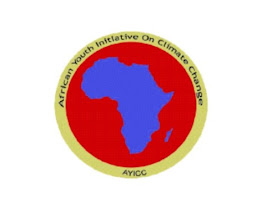YOUTH POSITION ON THE ROAD TO PARIS.
The
Youth Negotiations on Climate Change Conventions (YNCC) Position on
The
Road to Paris (COP21)
We, the participants of the
“Road to Paris” conference held at the HoAREC headquarters welcome the
opportunity for engagement and appreciate the space
to have
our voices heard;
Recognizing that youth are one of the most vulnerable groups to disasters, climate
Recognizing that youth are one of the most vulnerable groups to disasters, climate
change, fragility and conflict; and aware of the large cohort of
youth impacted by unemployment, underemployment, poverty, sporadic crises,
recurrent displacement, poor infrastructure and inadequate basic social services
and public utilities;
Convinced that the demographic bonus Africa enjoys is as an
inalienable asset to Africa’s sustainable development and concerned at the
under-representation of youth in policy design and implementation frameworks,
yet, we are also powerful agents for change due to our creativity and
innovation;
Welcoming the engagement of the youth within regional and global
frameworks on climate change, including the recent decision by the IPCC to
engage young climate scientists in its areas of work;
Noting the decision of the Committee of African Heads of States on
Climate Change (CAHOSCC) on the elaboration of youth engagement within the
climate change negotiations;
Appreciating the implementation of the CAHOSCC decision by the
African Climate Policy Center; in particular, through the creation of a
ClimDev-Africa Youth Platform to facilitate synergy, information sharing,
linkages and knowledge management;
Agree on the following:-
Adaptation, Mitigation
and Capacity Building
- Enhancement of capacity building through environmental education and learning from early childhood.
- Investment on the training of a cadre of young climate scientists to mainstream youth priorities, with a particular focus on the disaggregation of data by age, gender and location within the IPCC and other climate processes.
- Further focus on the training of environmental youth groups to scale up their capacity to influence national and regional processes, resulting in bottom-up input to climate governance.
- Allocation of resources to create an “African Agricultural Innovation Hub” to engender a critical mass of agro-entrepreneurs able to leverage opportunities in agricultural value chains, for example, through product development, use of green technologies, agro-mechanization and agro-processing.
- Emphasis on efficient social protection mechanisms to build resilience of marginalized and disenfranchised rural youth against adverse climate change; cushion the risk and vulnerabilities of engaging in agriculture for small holder famers
- Full implementation of the Warsaw Mechanism on Loss and Damage to fully account for the dire consequences of climate change.
Climate Finance and Technology
Transfer
·
The Green Climate Fund
facilitates access to finance for certain priority areas such as gender based
projects. In order to further support young entrepreneurs, implementation the
GCF should add a youth component to its priorities areas. In addition, the
capacity of the youth to access finds through the GCF should be enhanced. For
example, through the accreditation of local financial institutions that
currently serve as intermediaries between local youth groups and the GCF.
- Acceleration of the delivery of the USD 100 billion a year commitment to the GCF, with a focus on financing projects relating to youth.
- Promoting efficient technology transfer through knowledge sharing on good practices, disaster risk reduction, meteorological information and access to cost-effective solutions.
- New research on the potentials of incorporating technology transfer within existing mechanism of carbon trading.
- Engendering young lawyers to serve as experts on climate finance planning to increase Africa’s access to the GCF.
Means of
Implementation, Intended Nationally Determined Contributions (INDCs) and Youth
Engagement in
Climate Negotiations
- Finance the participation of youth within climate change negotiation processes including the UNFCCC, IPCC, INDC’s, UNCCD, UNCBD, and other MEA’s related to climate change policies.
·
Creation of an African Youth Group
of Negotiators (AYGN), that represent their governments in national
delegations. The AYGN should be supported by existing African frameworks such
as the African Group of Negotiators, African Youth Initiative on Climate Change
and the ClimDev-Africa Youth Platform.
·
We agree that the original
interpretation of Common But Differentiated Responsibility as articulated in
the UNFCCC should persevere. CBDR should be based on historical emissions. As
such, mitigation actions that are beyond national capacities should be financed
through multilateral sources.
·
We agree that emissions should
be measured on a per capita basis, according to consumption rather than
production. There should be a distinction between survival and luxury
emissions.
·
We advocate for the support of
innovative and creative campaigns for and by the youth who are walking the talk
on action against climate change. Examples include: We Have Faith-ACT now for Climate
Justice Cycling Awareness Campaign on the theme “Road to Paris”, The Arts and
Media for Climate Campaign and The African Youth Conference on Climate Change
(AFRIYoCC) to be held on the International Youth Day, August 2015.
We The Youth, Are The Leaders of Today And Tomorrow. We Will Grow and
Sustain an Ambitious and Equitable Climate Change Agreement in Paris and Beyond.

Nice post!
ReplyDelete